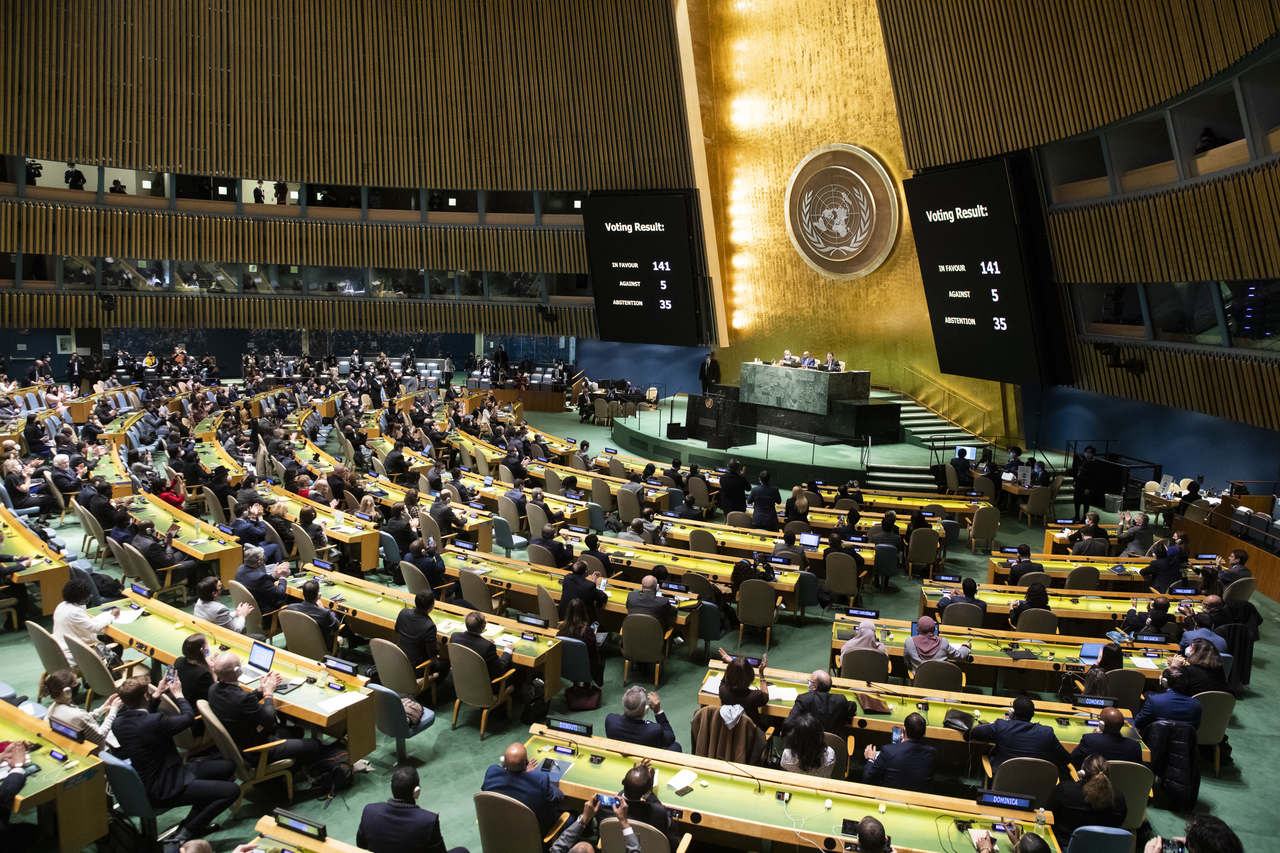The Repercussions of Russia's Invasion of Ukraine for Africa
In recent years, Africa has been an area of particular interest for Russia as a field of rivalry with the West, especially with France, and of military expansion. The invasion of Ukraine will be a test of the durability of the economic, political, and military ties Russia has built on the continent. While only Eritrea openly supported Russia at the UN General Assembly (UNGA), several countries abstained or did not vote. Russia is demonstrating it can still deepen its influence in priority regions, for example, by obtaining approval for a naval base in Sudan.
 Fot. Wang Ying/Xinhua News Agency/Forum
Fot. Wang Ying/Xinhua News Agency/Forum
Which countries in Africa supported Russia?
On the eve of the invasion, the speech by the Kenyan ambassador to the United Nations, who justified opposition to aggression with parallels to the history of postcolonial Africa, was widely echoed. Ultimately, however, at the UNGA, the resolution condemning Russia was supported by only 28 out of 54 African countries. Although only the internationally isolated Eritrea voted against (in support of Russia), for a number of countries, including Mali, Sudan, the Central African Republic (CAR), Zimbabwe, South Africa, Algeria, and Ethiopia, abstaining was a form of demonstrating ties with Russia, Belarus, or distancing themselves from West.
The convergence of interests with Russia was reflected in a week-long visit to that country by a delegation from Gen. Mohamed Hamdan Daglo, a leading member of the Sudan ruling junta, which coincided with the beginning of the invasion. He stated that he supported Russia’s “right to defend itself and its people” and, after returning home, announced the restoration of approval for the establishment of a Russian military base on the Red Sea. Simultaneously, slogans of support for Ukraine are visible in Sudan during the protests against the military that had previously used Russian aid to suppress democratic movements. Autonomous Zanzibar offered practical support to the Ukrainians, sheltering several hundred tourists surprised by the war during their holidays.
What will the economic fallout be for Africa?
African countries fear that Russia’s attack on Ukraine will result in an increase in the prices of bread, related to the fact that a number of states import wheat from these two countries (Egypt receives 70%; Tanzania, Nigeria, Kenya, and South Africa all import a significant percent of wheat). The prices of fertilisers may also increase as many of them come from Russia, Belarus or the EU, where the cost of their production is connected to gas prices. This will mean a deepening of the economic crisis caused by the COVID-19 pandemic. At the same time, the international mobilisation of aid for Ukraine reduces the chances that the African Union (AU) will receive a transfer from the EU of part of the IMF funds for the post-pandemic reconstruction, which it sought during the recent EU-AU summit in Brussels. The EU’s drive to become independent from raw materials from Russia gives African gas producers, especially Algeria, an opportunity to sell more to European markets. In the longer term, Nigeria, among others, may also benefit once it expands production and transmission infrastructure, perhaps with the support of the EU.
What about those Wagner mercenaries?
The Russian mercenaries are stationed in Libya, Sudan, CAR, and other countries on the continent. As a result of Russia’s rising influence in Mali at the expense of France in recent weeks, an intensive process of transferring new Wagner forces to Mali accelerated in January. Their number could have exceeded a thousand there. In connection with the invasion of Ukraine, some of those contingents, especially from the CAR could have been relocated to the battlefield in Europe, at least temporarily, which would weaken the Russian hinterland in Africa.
The presence of mercenaries on the continent also has an economic dimension. In return for supporting the authorities or military factions in CAR and Sudan, companies associated with the patron of the Wagner Group, Yevgeny Prigozhin, obtained access to deposits of valuable minerals, primarily gold. The export of gold from Sudan, which has been undocumented for several years, but could have reached 30 tonnes annually, has allowed Russia to build up reserves for the possibility of sanctions—in 2020, for the first time, the value of its reserves in gold exceeded those in dollars. Hence, the key importance for Russia of maintaining footholds in this country.
How will the cases of the stranded African students affect the attitudes of African countries?
Reports of racism against African students trying to leave Ukraine, echoed in the AU’s 28 February statement, distanced African public opinion from the Ukrainian cause. This was evident, for example, in the attitude of Senegal, which first supported the resolution of the Economic Community of West African States (ECOWAS) condemning Russian aggression but later abstained in voting at the UNGA. Launching repatriation operations, for example, to Ghana, Nigeria, and the steps taken by the Ukrainian authorities, in particular setting up a special line of contact for students from Asia and Africa who have difficulties in leaving, helped to limit the negative effects of the earlier actions.


